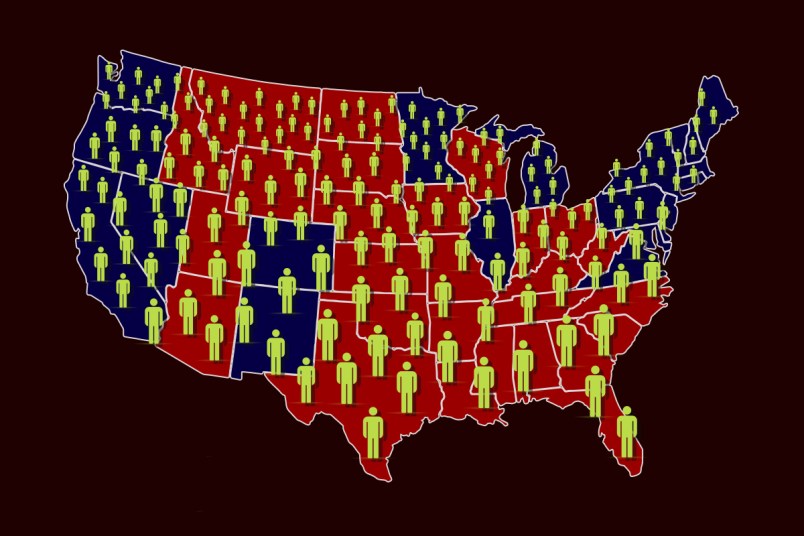Texas is the big winner in this decade’s reapportionment process, as it will gain two congressional seats from the results of the 2020 census.
Six other states — mainly in the south and west — will gain House seats, while seven states will lose congressional representation.
The shift of seven seats among 13 states was much smaller than what some prognosticators were anticipating. The survey counted 331,449,281 people living in the United States on April 1, 2020 — a growth of 7.4 percent in the last decade. That was the second slowest growth rate in U.S. history.
The state-by-state population totals in the 2020 census, and what they mean for how many House seats each state gets, were announced Monday by the Census Bureau, which cleared a major landmark in a decennial count that faced unprecedented challenges
The gains for states in the south and west come at cost to other parts of the country, where the population growth has slowed.
The states that will gain one congressional seat each are Colorado, Florida, Montana, North Carolina and Oregon.
California, Illinois, Michigan, New York, Ohio, Pennsylvania and West Virginia each lost a seat.
Monday’s announcement of the apportionment numbers comes after the Census Bureau had to drastically rework its timeline because of the pandemic. Usually the state population totals from a decennial count are announced by the end of December of that year. But the COVID-19 outbreak severely disrupted the launch of the 2020 census, which was supposed to begin in earnest on April 1. The previous administration appeared to flip-flop on whether to give the bureau that extra time, as then-President Trump announced he wanted to exclude undocumented immigrants from the apportionment count. That anti-immigrant gambit was ultimately not implemented, and Monday’s data reflects everyone residing in the United States that the survey counted.
Some estimates leading up to Monday’s announcement anticipated even bigger gains in the South, where some analysts had projected Texas gaining three seats and Florida gaining two. The underperformance of those states immediately raised questions about whether their burgeoning Hispanic populations were fully counted.
On a press call with the announcement, a bureau official said that the 2020 census counts for both states came in slightly below the estimates the agency itself had done based on birth, death and migration data.
Rhode Island staved off a loss of a seat that was expected by some, while New York’s loss of one seat was better for that state than some estimates that showed it losing two seats. New York City invested significant resources into encouraging census participation. Had 89 more people been counted in the state, and all other state populations had remained the same, it would have not lost a congressional seat.



